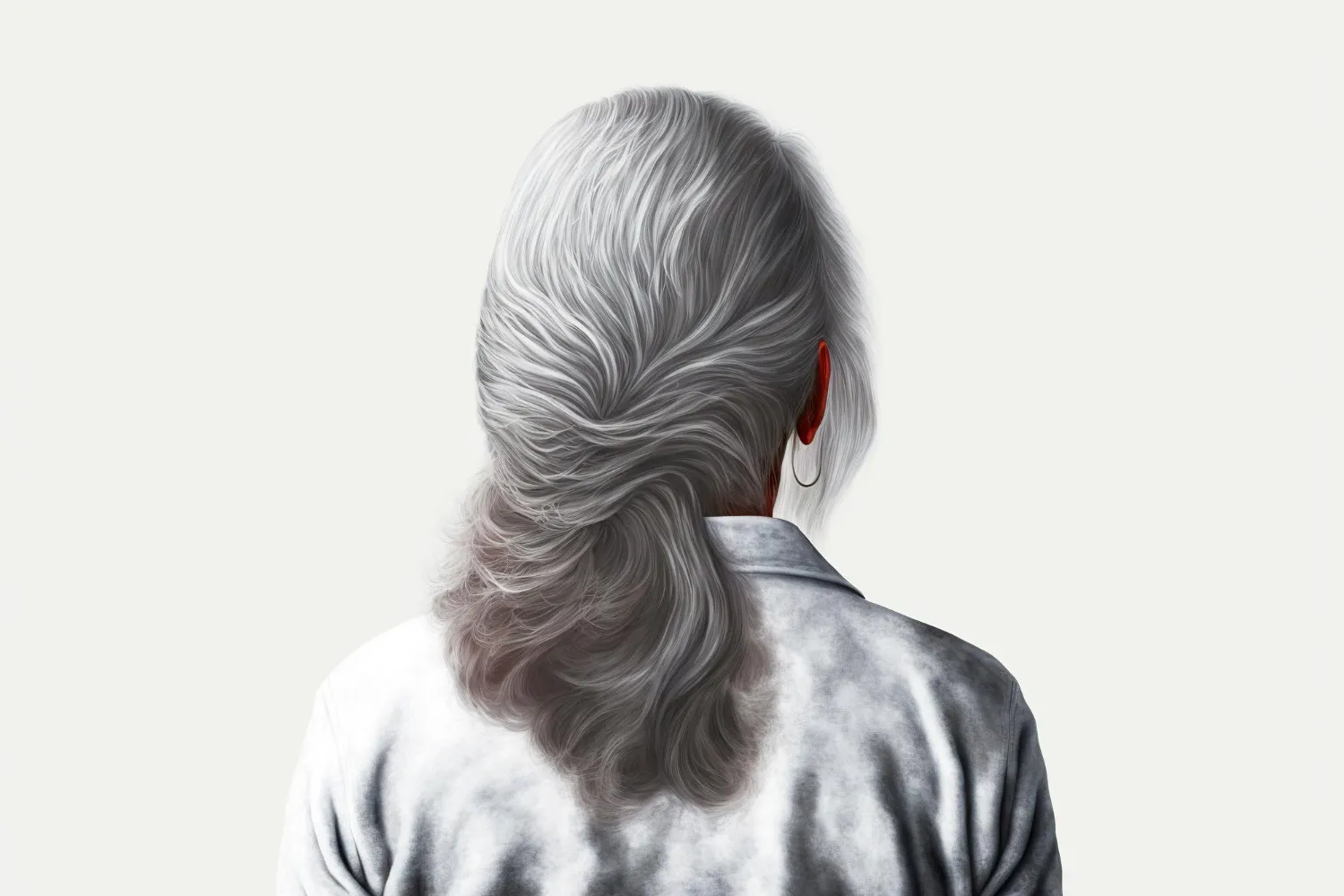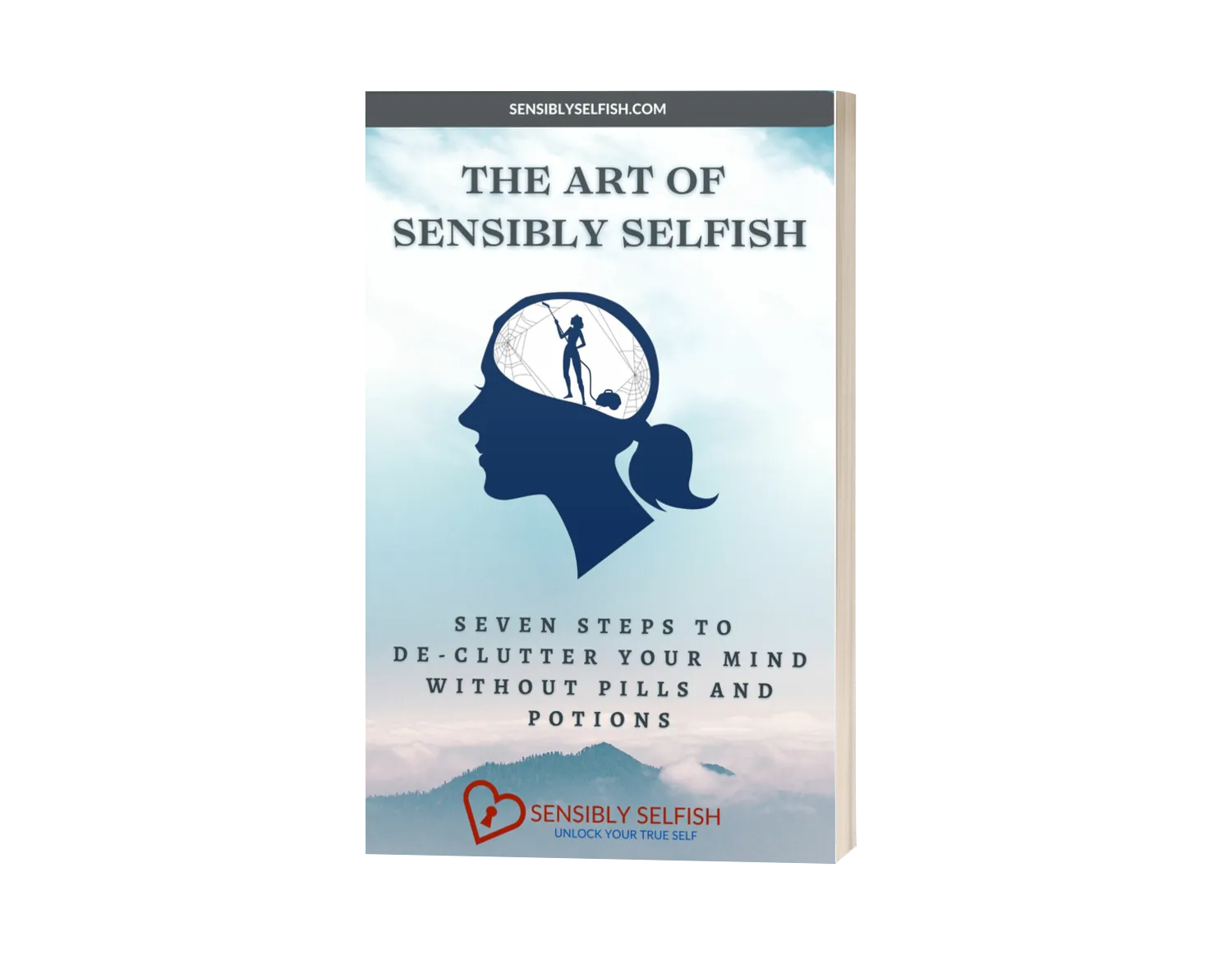The Link Between Visceral Fat and Alzheimer's
What You Need to Know and Do at Midlife

[Toc]
In midlife, where wisdom and wrinkles coexist, we find ourselves constantly on an introspective journey. Aging is an art - every laugh line tells a story. Yet, as the pages of our lives turn, recent research unveils a chapter that demands our attention: the connection between visceral abdominal fat and the looming shadow of Alzheimer's.
Before delving into the discussion, it's essential to acknowledge that the information provided in this post is for educational purposes only. We are not healthcare professionals, and the content should not be considered a substitute for professional medical advice, diagnosis, or treatment.
While this post will explore the issue of visceral fat in layman's terms and offer general steps to promote health, individual circumstances vary. It is crucial to consult with a qualified healthcare professional for a comprehensive evaluation tailored to your specific needs. This post does not intend to provide medical advice, and any actions taken based on the information herein are at the reader's discretion.
What is Visceral Fat?
Visceral fat is a central character that often plays a silent but influential role. Unlike the subcutaneous fat that sits just beneath our skin, visceral fat takes residence deep within, surrounding our internal organs. It's the stealthy neighbor, quietly influencing our health in ways we might not immediately perceive.
Fat is a protective cushion that, in moderation, guards our organs. However, when this fat accumulates excessively, it becomes more than just a physical presence. Visceral fat is not inert; it's metabolically active, releasing chemicals that can travel through the bloodstream, impacting our body's delicate balance.
Why does it matter? The answer lies in its intricate dance with our health. Researchers have uncovered a link between high amounts of visceral fat and the development of Alzheimer's disease. This revelation elevates the importance of understanding and managing visceral fat beyond mere aesthetic concerns.
During midlife, our bodies undergo changes influenced by hormones, metabolism, and lifestyle, visceral fat can become more prominent. It's not just about the inches on our waistline; it's about the story these inches tell about our overall well-being.

The Intricate Link Between Visceral Fat and Alzheimer's
Researchers suggest that the metabolic activity of visceral fat may release chemicals into the bloodstream, setting in motion a series of events that can impact the delicate balance of our brain.
The revelation that elevates visceral fat from a mere bodily component to a potential harbinger of Alzheimer's lies in the timeline of its influence. Studies indicate that changes in the brain associated with Alzheimer's may occur up to 15 years before any noticeable symptoms manifest. This extended prelude suggests that the impact of visceral fat on brain health is a gradual, long-term process, emphasizing the importance of early awareness and intervention.
Researchers posit that one key mechanism linking visceral fat to Alzheimer's is inflammation. Excessive visceral fat is associated with chronic inflammation, a state that can negatively affect the brain over time. Furthermore, the release of certain chemicals from visceral fat may directly contribute to the development of brain changes associated with Alzheimer's.
Our bodies are interconnected systems, and disruptions in one area can reverberate throughout. Visceral fat is intricately linked to metabolic health, influencing factors such as insulin resistance and glucose metabolism. These metabolic imbalances are not only risk factors for conditions like diabetes but also contribute to the complex web of factors that may lead to cognitive decline.

A Simple Method to Measure Visceral Fat
While measuring visceral fat accurately typically requires specialized equipment like dual-energy X-ray absorptiometry (DEXA) scans or MRI, there are some simple methods and indicators that individuals can use at home to get a rough estimate of their visceral fat levels. Keep in mind that these methods provide general insights and are not as precise as medical-grade assessments. Always consult with a healthcare professional for a comprehensive evaluation. Here are a few simple methods:
Waist Circumference: Use a flexible tape measure to measure the circumference of your waist at the level of your navel. A waist circumference greater than 35 inches (88 cm) for women may indicate higher levels of visceral fat.
Body Mass Index (BMI): While BMI doesn't directly measure visceral fat, it can offer a general indication of overall body fat. A BMI in the overweight or obese range may be associated with higher visceral fat levels.
Waist-to-Hip Ratio: Measure your waist and hips, then calculate the waist-to-hip ratio by dividing your waist measurement by your hip measurement. For women, a ratio above 0.85 may suggest higher visceral fat levels.
Bioelectrical Impedance Scales: Some home scales come with bioelectrical impedance analysis (BIA) features. These scales send a low-level electrical current through the body, estimating body fat percentage, including visceral fat. Keep in mind that the accuracy of these scales can vary.
Visual Inspection: While less precise, changes in your body shape can provide visual clues about visceral fat. If you notice an increase in belly fat, it might suggest an accumulation of visceral fat.
These methods provide estimates and trends rather than precise measurements. For a more accurate assessment of visceral fat and overall health, consult with a healthcare professional. They can recommend medical-grade tests and provide personalized guidance based on your specific health profile.

The Role of Lifestyle and Aging
As we navigate the seas of midlife and beyond, lifestyle choices become pivotal. The impact of visceral fat on brain health is not predetermined; rather, it's influenced by how we choose to live our lives. Nutrition, exercise, and stress management—all play crucial roles in determining the trajectory of our health and, by extension, our cognitive well-being.
The thread of visceral fat weaves a story that extends beyond the visible contours of our bodies. Understanding this narrative empowers us to make informed choices, steering our journey toward aging with mindfulness and resilience. It's a call to action, urging us to address not only the symptoms but also the subtle undercurrents that shape the landscape of our well-being.
In the mirror of midlife, we confront changes that defy societal norms. Our bodies, resilient vessels of experience, undergo transformations. The dance with visceral fat becomes more pronounced. Yet, within this reality lies an opportunity for self-love and care. Let's acknowledge the changes, embracing them as chapters in our unique journey.

Your Body: Practical Steps to Manage Visceral Fat and Promote Brain Health
Managing visceral fat and promoting brain health involves a harmonious blend of simple lifestyle choices. Let's explore some actionable steps that weave seamlessly into the fabric of sensibly selfish living:
Nourish Your Body with Mindful Nutrition: Embrace a balanced and nutrient-dense diet rich in fruits, vegetables, lean proteins, and whole grains. Moderate your intake of processed foods, sugary beverages, and saturated fats. Consider incorporating brain-boosting foods such as fatty fish, nuts, seeds, and antioxidant-rich berries into your meals.
Prioritize Regular Physical Activity: Engage in a mix of aerobic exercises (such as walking, jogging, or dancing) and strength training to promote overall health. Aim for at least 150 minutes of moderate-intensity exercise per week, adapting the routine to your fitness level and preferences. Explore activities that bring joy and fulfillment, making exercise an integral part of your lifestyle.
Cultivate Stress-Reducing Practices: Integrate mindfulness techniques, such as meditation or deep breathing exercises, into your daily routine. Prioritize activities that bring relaxation and joy, whether it's reading, gardening, or spending time in nature. Recognize and address sources of chronic stress, seeking support when needed.
Stay Hydrated and Mindful of Portions: Hydration is key to overall health; aim for an adequate intake of water throughout the day. Be mindful of portion sizes, and listen to your body's hunger and fullness cues. Consider adopting mindful eating practices, savoring each bite, and fostering a healthy relationship with food.
Get Quality Sleep: Prioritize consistent and restful sleep by establishing a regular sleep schedule. Create a relaxing bedtime routine to signal to your body that it's time to wind down.
Address sleep disturbances or conditions affecting sleep quality with the guidance of healthcare professionals.
Build a Supportive Network: Foster meaningful connections with friends, family, and community. Share your health and wellness goals with trusted individuals who can provide encouragement and accountability. Recognize the importance of social support in navigating the journey of mindful aging.
Eliminate Toxins and Plastic: This is a topic that still requires more investigation. Yet muffin tops may be caused by our environment. Consider removing toxins and chemicals from your home and avoid buying food in plastic.
Breathe Deeply: Did you know we release fat in our bodies through breath? Take time each day to breathe deeply. Each exhale carries with it not just the air that sustains you, but also the byproduct of your body's metabolic processes.
Seek Professional Guidance: Always consult with a qualified healthcare professional for a comprehensive evaluation tailored to your specific needs.
NOTE: Stop reading now and make those appointments with your healthcare provider!

Conclusion
Aging is not the enemy; it's the masterpiece in the making. With mindful choices and self-compassion, we educate ourselves on visceral fat, rewriting the narrative of our health and aging.
In the journey of sensibly selfish living, knowledge is our ally. By understanding visceral fat, we empower ourselves to make informed choices. It's not about vilifying a part of our body; it's about recognizing the impact this fat can have on our health and taking proactive steps to maintain a harmonious balance.
The journey of sensibly selfish living is a personalized exploration. These practical steps, from mindful nutrition to joyful movement, offer a foundation. Yet, it's crucial to tailor them to your unique preferences and circumstances. Embrace the journey with self-compassion, celebrating small victories as you navigate toward a life rich in health, fulfillment, and mindful aging.
By breaking free from societal expectations, we challenge the shadows cast on aging, celebrating the strength, resilience, and authenticity of women over 45. In the symphony of aging, our minds play a vital role. Stress influences visceral fat, and in the pursuit of mental well-being, we find sanctuary. Mindfulness becomes our anchor, and seeking support becomes our strength.









